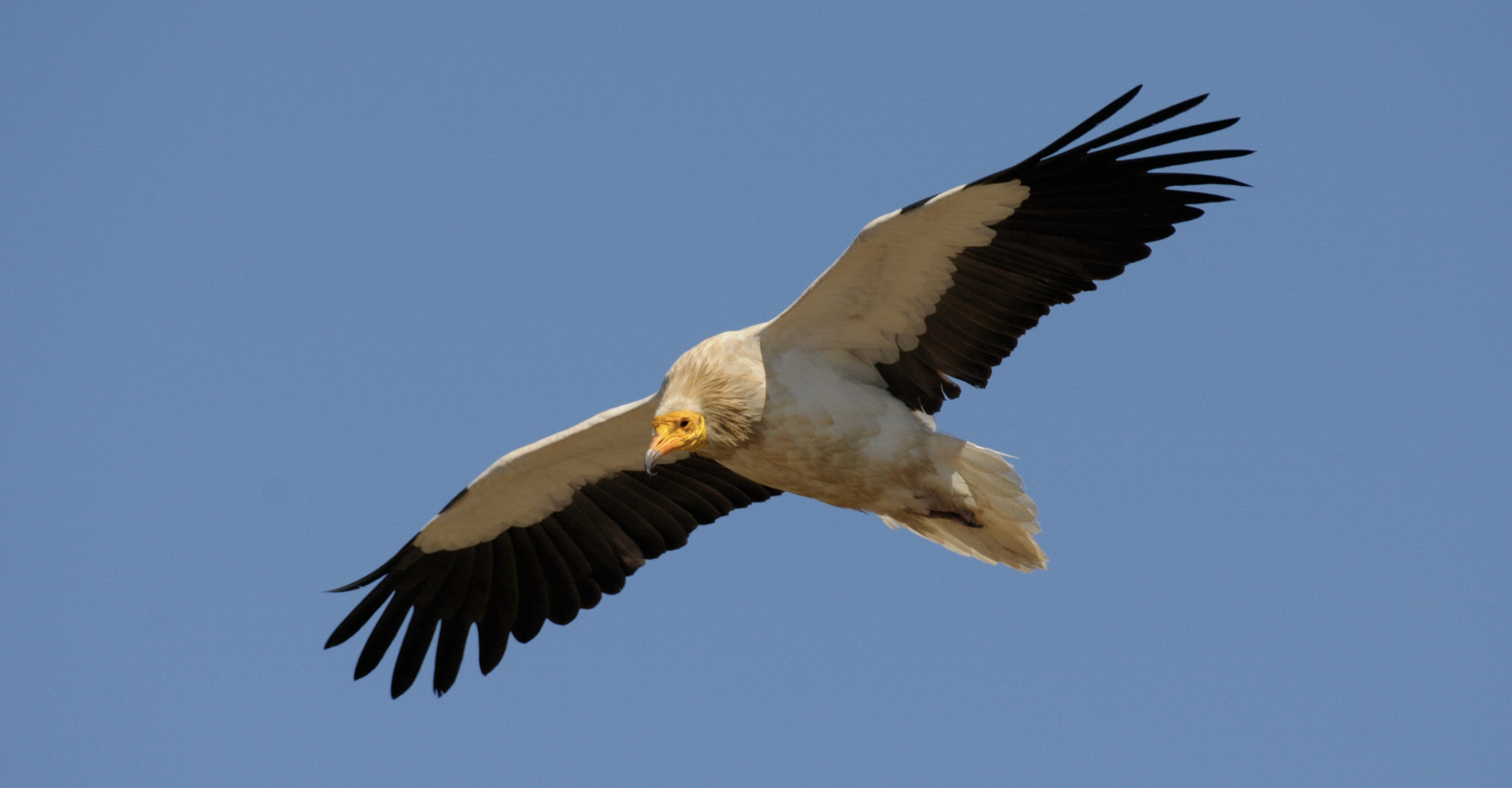
A joint team of EWNHS, BirdLife Africa, external experts, RSPB and BSPB headed towards Afar in Ethiopia once again in December within the framework of the Egyptian Vulture New LIFE Project. The mission aimed to tag with GPS transmitters more Egyptian Vultures and survey the main threats for the species, especially the use of poison.
Trapping and tagging Egyptian Vultures

For over two weeks under the hot African sun, the project team managed to capture eight Egyptian Vultures and equipped them with solar-powered GSM/GPS transmitters, increasing the number of tracked Egyptian Vultures in Ethiopia to 15. Trapping Egyptian Vultures is not that easy. It involves waking up early, spending long hours under the heat at the rubbish dump, and keeping away other species that are regularly walking through the trapping area like Marabou Storks, Hooded Vultures, Sacred Ibises, dogs, donkeys, and even warthogs and hyenas.
Tagged Egyptian Vultures
Basaka, Awash, Alolobad, Semera, Dalol, Loma, Lubo, and Milli are the new vultures the team managed to tag, who will help reveal the most important areas for the species in Ethiopia by tracking their everyday movements. The information these birds will provide will significantly increase their knowledge of the behaviour of the species in the wintering grounds, the threats they face, which will help inform adequate conservation measures for this endangered vulture.
Threats the species face in Ethiopia

Among the main threats for the species in most of its range is poisoning. The project team conducted over 70 interviews with livestock breeders and representatives of authorities to get a thorough understanding of the prevalence of poisoning in Afar. Their interviews revealed that the vast majority of livestock herders experienced problems with carnivores, especially hyenas, jackals, leopards and feral dogs that occasionally attacked their livestock. Nearly 50% of the respondents admitted that poisoning is among the means used in their community to tackle the problem with the carnivores. Vultures as ultimate scavengers can consume the poison baits or carcasses and become unintentional victims of this dangerous practice, and the locals reported such cases. The livestock breeders also shared information about Egyptian Vulture mortalities caused by electrocution at dangerous powerlines. Another threat to the vultures is the use of strychnine in poisoning campaigns targeting feral dogs in the towns and villages. The collected information will enable the project to plan their future conservation actions and advocate for the adoption of alternative methods for controlling the number of feral dogs.
In the late afternoons just before sunset, the team was counting the roosting Egyptian Vultures on the high-voltage powerlines. They recorded a congregation of 1484 Egyptian Vultures and observed some other raptor species wintering in the same area such as Steppe Eagle, Imperial Eagle, Black Kite, and Osprey. One adult Egyptian Vulture was found dead on the road, while two more were found dead under dangerous powerlines.
Source: Egyptian Vulture New LIFE
Egyptian Vulture New LIFE

Working collaboratively projects like the Egyptian Vulture New LIFE aims to reinforce the Egyptian vulture population in their Europe’s easternmost range across the Balkans. By actively managing and restocking the population by releasing captive-bred birds the project will support the small Balkan population which number between 60 and 80 pairs across the whole region. The project is working to deliver conservation measures that eliminate major known threats such as illegal poisoning and electrocution in their summer breeding grounds. Monitoring the population closely using GPS transmitters will also help the project tackle the major threats Egyptian vultures face. The Egyptian Vulture New LIFE is a partnership of organisations, led by the Bulgarian Society for the Protection of Birds from 14 countries spanning Europe, the Middle East and Africa, to protect Egyptian vultures not only in Europe but all along their migratory flyway.




